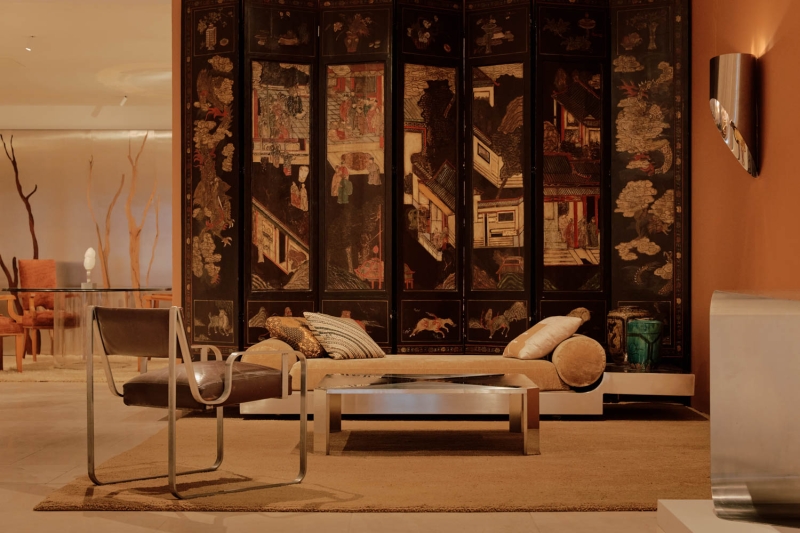Daybed (1968), Low Table (1968) and Chaise Suspendue (1968) take center stage in this room.
“Precious Strength: Maria Pergay Across the Decades” at Demisch Danant is a fittingly titled exhibition of the designer’s vast work. The roughly 35 pieces featured in the Greenwich Village gallery storefront include a sweeping potpourri of materials used throughout Pergay’s career, which spanned more than six decades. The Moldova-born designer’s gentle use of steel in conversation with wood, fabrics, and glass yields sculptural and even costume-like furniture pieces with playful accents. Drape Cabinet pieces from 2005, for example, show steel plane surfaces being folded like pieces of clothing to reveal their ebony coating. Dramatic and daring, Ribbon Pouf from the same era shows a steel bench with a large ribbon carving on each end.
Exactly a year after her passing at age 93, the show showcases one of the most under-explored female French designers of the 20th century, emphasizing her groundbreaking work in steel and soft materials. “Maria was the Eileen Gray of 1970s although she is not yet considered this way,” says Stephane Danant, gallery cofounder, who first encountered her work with his partner Suzanne Demisch in a design magazine in the early 2000s. The duo pursued Pergay, who was producing work in relative obscurity at the time and agreed to a meeting at a Parisian bar. “She was surprised to see younger people showing interest to her work,” remembers Danant. Pergay considered the idea of recreating some of her older works for her first show with the gallery in 2006. “We were against the idea because no one knew Maria at the time,” Danant adds. “To convince her, we asked her if Yves Saint Laurent would re-create a collection from 1978.” The gallery’s presentation of some of Pergay’s seminal works in Design Miami 2013 revitalized her career, which also coincided with a Fendi collaboration.
The owner of a 1960s mainstay steel company, Uginox, even reached out to Pergay as part of their strategy to promote the use of stainless steel in design. “She told them the material wouldn’t be appropriate for small objects, but she would be willing to use it in furniture,” the dealer adds. Pergay debuted her steel works at Galerie Maison et Jardin in May 1968. “Other designers were starting to use the material in France, but Maria was the only one who exclusively made furniture with steel,” says Danant. He points out her “sleek and poetic shapes” in Ring Chair from 1968 or her Flying Carpet daybeds which are not included in this current show. The gallery’s early collaborations with the designer encouraged her to implement new materials in relationship with steel such as mother of pearl and wood.
“This is not a retrospective show,” explains Danant, who aims to “say something about her vocabulary and have it translated” to a new audience. Supported by archival imagery, the show Pergay’s complete commitment to operate in a male-dominated field by working with largely with an industrial material. “She was designing, producing, marketing, and selling her work,” Danant adds. “Putting Maria into one category would not be accurate—she stands somewhere else as a maker and thinker.”
Precious Strength: Maria Pergay Across the Decades ran from October 24 – November 30, 2024 at Demisch Danant.
Glimpse Highlights From An Exhibition Honoring Maria Pergay
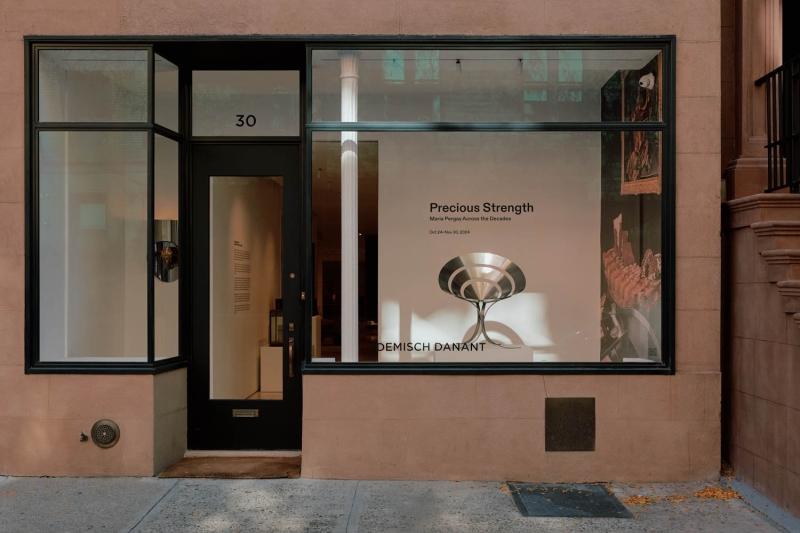
Precious Strength: Maria Pergay Across the Decades at the Demisch Danant.
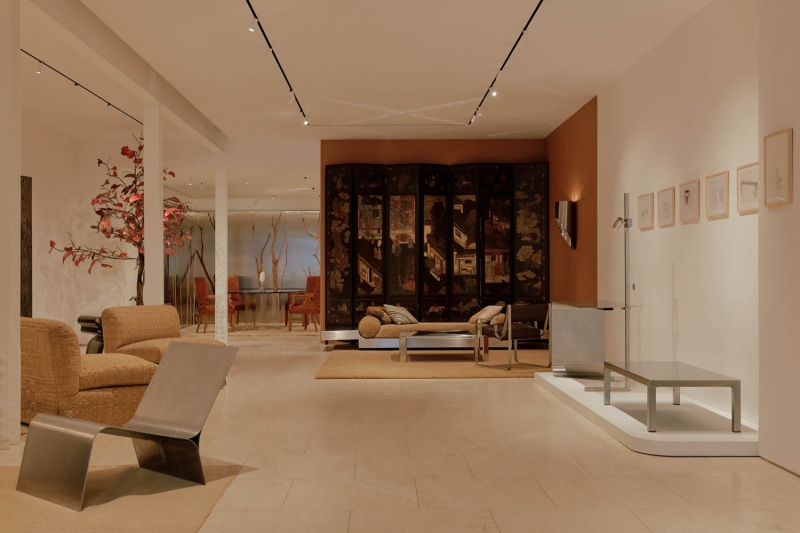
Furnishings and objects on display in the exhibition.
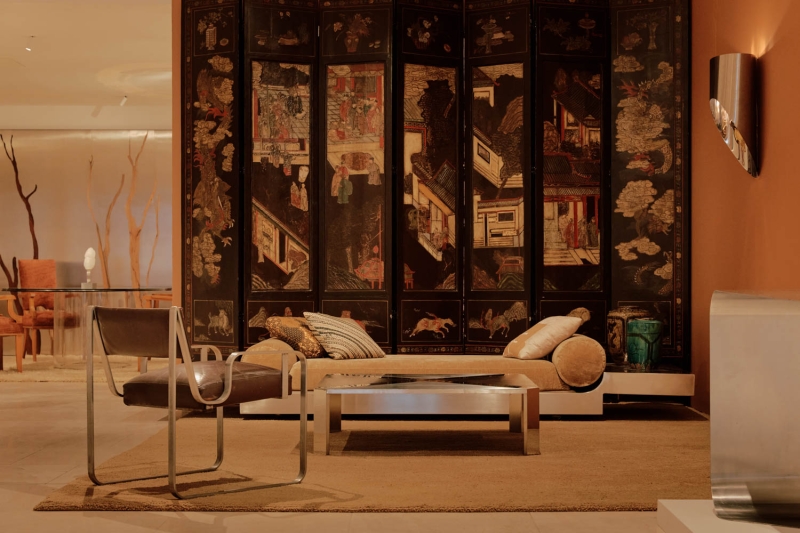
Daybed (1968), Low Table (1968) and Chaise Suspendue (1968) take center stage in this room.
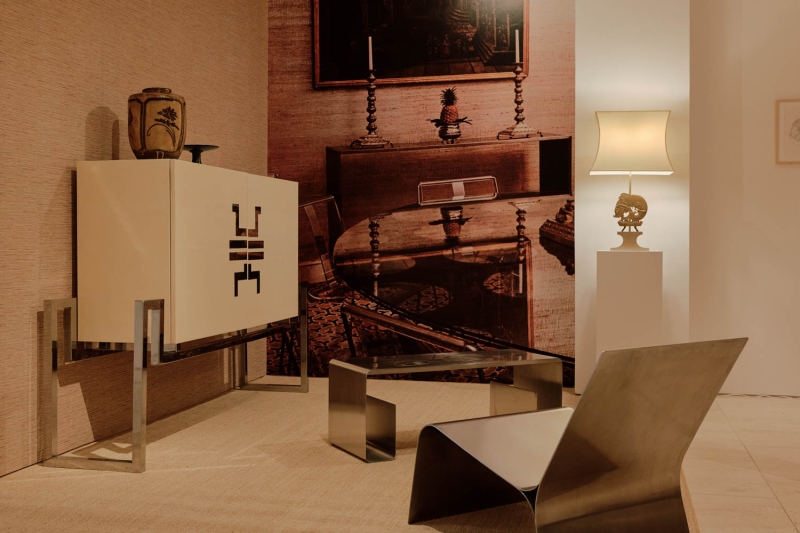
This room showcases a few of Maria Pergay’s pieces, like Cabinet (1970), Lampe Dragon (1974) and Folded Chair, Model 933 (1975).
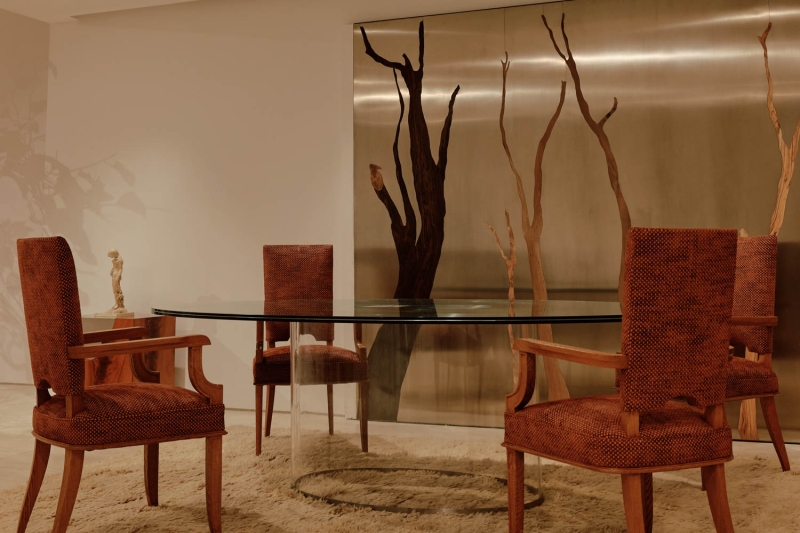
Maxime Old’s Set of 4 Armchairs (1947) pairs perfectly with Maria Pergay’s Boiserie (2006) and Table Arc-en-Ciel

